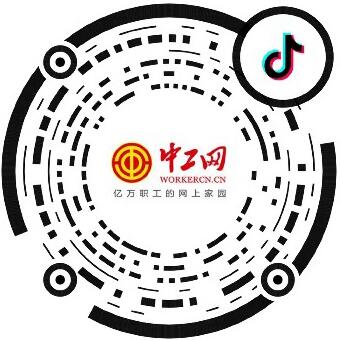Original title: Dozens of publishing institutions boycott the promotion scheme of 2~3% discount for all kinds of books to attract attention (quotation)
Who decides how much to discount books? Subject
Worker's Daily - reporter Wu Lirong of China Industrial Network
With the coming of "618" promotion, dozens of publishing institutions issued a statement not to participate in the promotion plan of "618" full range books on an e-commerce platform, which attracted the attention of the industry and readers.
In the view of the insiders, the contradiction between the publisher and the channel in book pricing has a long history. This time, the publisher's resistance to the "618" promotion is a concentrated outbreak.
Why should e-commerce platforms significantly reduce discounts? Why did the publishing institutions launch a boycott against Dajin? Who decides the discount of books? The reporter of Workers' Daily conducted an in-depth interview.
Several publishing institutions quit a platform "618"
Recently, 10 publishing institutions, including Tsinghua University Press, Peking University Press and others, said in a joint statement that they would not participate in the promotion of all kinds of books required by an e-commerce platform "618" at a discount of 2 to 3, because "in order to maintain the long-term healthy development of the market, we think this is a necessary measure".
Another statement issued by the Shanghai Publishing House Management Association shows that "to maintain the stability and prosperity of the book market and oppose disorderly competition", 46 publishing institutions in Shanghai do not participate in the "618" promotion of an e-commerce platform.
"Two to three percent off can be said to break the bottom line," a staff member of Peking University Press told reporters. At present, other publishers have issued separate statements not to participate in the above promotions.
In response, the book purchasing and marketing staff of the e-commerce platform said that they just want to sell cheaper books, expand sales through small profits and quick turnover, and create profits for partners.
On the reader side, the discussion is intense. Some people say that it is a good thing that books are cheaper; Some people think that "low price without bottom line" will eventually kill the publishers who want to do good books; It was also pointed out that the channel dealer forced the publishing house to set a high price at a discount, which would cause a vicious circle.
Where is the confidence of the boycott?
"We participated in the promotion of e-commerce platform, and even if we did not make much money, we just got together." Ms. Yu, the marketing editor of a publishing house in Anhui, told reporters that the discount of the promotion was set by the platform, and the publishing houses were forced to participate in activities.
Dajin can really drive book sales. For some books in stock or books that have already been returned, it is appropriate to sell them at a lower discount. "But this time, the requirement is' all varieties', and it is 20% to 30% off, which is close to the cost price, and the publishing house really can't accept it," Ms. Yu said.
It is worth mentioning that the current national book retail market has changed. According to the market research data of Beijing Open Book Company, in 2023, short video e-commerce will account for 26.67% of the total retail market of books in China, ranking second only to traditional platform e-commerce and ranking second in all channels.
"The rise of the live broadcast platform has also made many publishers unwilling to be controlled by these traditional platform e-commerce, and the bargaining 'dominance' of the large platform in the past is declining." In the opinion of Mr. Zhang, who has been engaged in the publishing industry for many years, the platform e-commerce has pushed the discount lower than before, which has something to do with the impact of the short video platform.
Nowadays, many publishing houses have opened their own broadcast rooms, or entered the broadcast rooms of various talents and book bloggers, and the book sales channels are becoming more and more. And "the lowest price of the whole network" has become the selling gimmick of many live studios. "The platform e-commerce usually has a full reduction, and there may be exclusive gifts in the live broadcast room of the talent, and the playing method is different." Ms. Yu said.
Who decides book pricing?
Mr. Zhang told reporters that several years ago, some e-commerce platforms began to sell books at 50% discount, which made the book market "discount normalization". Many conventional books can be bought at a 50% discount, and the price of books published by publishers has gradually increased. "The price increase is mainly to cope with this normal discount".
"We have considered discounts when pricing books." Mr. Chen, the book planning editor of a Beijing publishing house, told reporters that, in addition to human costs, the cost of a book mainly includes two aspects: typesetting, design and printing, and the author's contribution fee. If books are discounted by 2~3%, most publishers may lose money.
The publishing house where Ms. Yu and Mr. Chen work has not withdrawn from the promotion of platform e-commerce. They all believe that publishers who dare to challenge the platform, "they have a good variety of books to support them, and their products have the confidence to resist when they are not worried about selling".
Another book blogger pointed out that the publishing house used to rely too much on platform e-commerce, and abandoned physical bookstores in the process. Now it is expected to be subject to the price control of the platform. In addition, the low quality of some books and the change of readers' reading habits have led to the reduction of book prices, but the low price and vicious price war are certainly not conducive to the long-term development of the industry.
Who decides the price of books? According to the analysis of insiders, books are special commodities. Some countries will intervene in the price of books and other cultural products, and regulations do not allow arbitrary discounts. Designing a book price policy suitable for China should be put on the agenda.


















